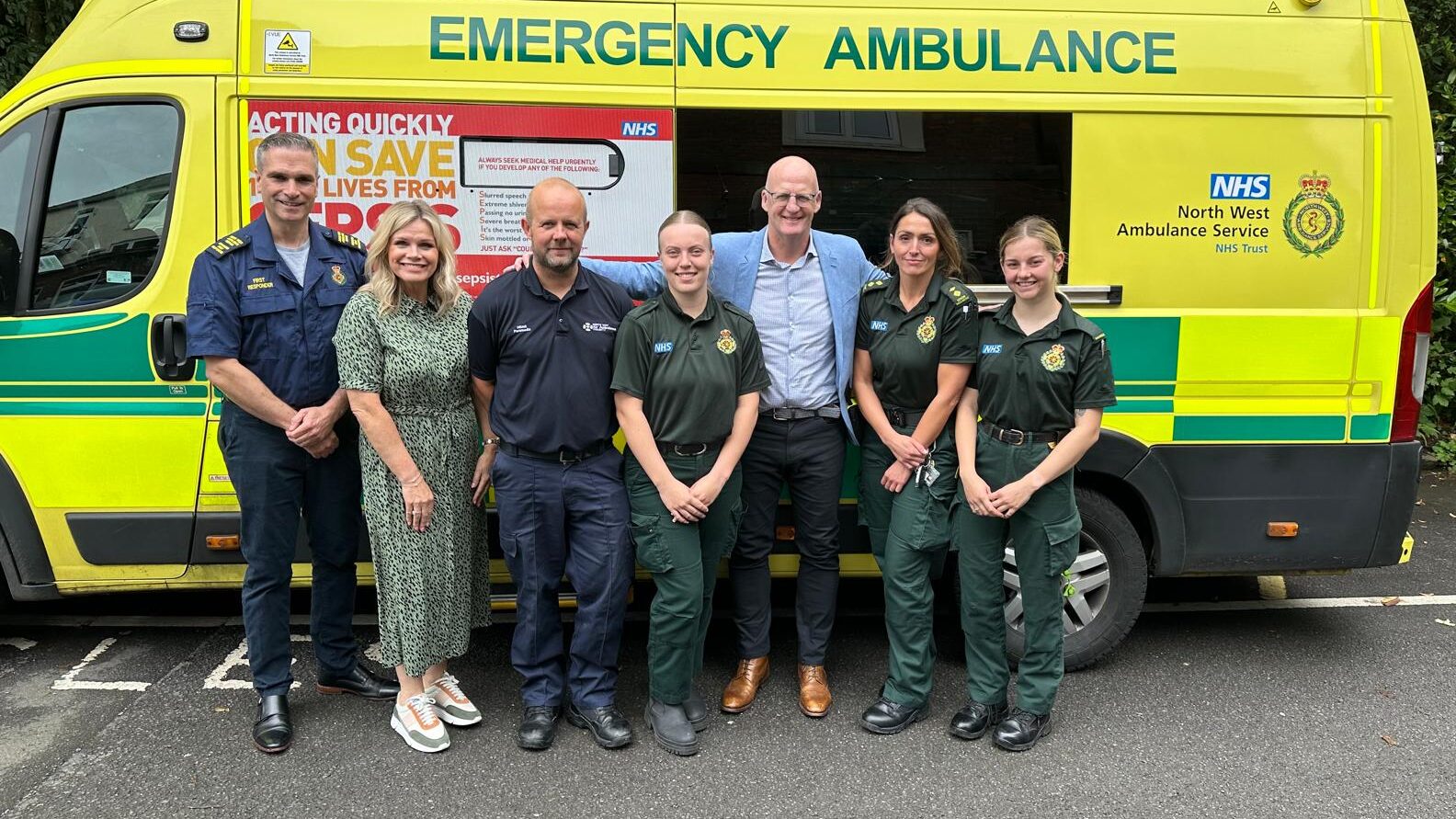
The former Crystal Palace player and manager was reunited with the ambulance and helicopter crews that came to his aid after the incident at Chorley Gymworks, Lancashire, on 18 March 2024. Iain was taking part in a spin class when he collapsed as his heart stopped. It was witnessed by his wife and a friend, who alerted staff and phoned 999. Within minutes, a defibrillator from the gym was attached to Iain, and a shock was delivered.
Iain says, “I remember very little about the actual spin class apart from sitting on the bike and then waking up 26 hours later in hospital. My wife has told me the details of all that went on, how staff and bystanders helped me off the bike, started CPR, and used the defibrillator.”
In addition to the people at the gym, more than 16 people were involved in the immediate response, including a community first responder, an ambulance crew, a senior paramedic and two air ambulance crews. More than half a dozen staff in the control room also had direct input, answering the 999 call, allocating resources to the scene and providing clinical oversight. Iain and his wife Debbie visited our Cumbria and Lancashire Headquarters near Preston to meet some of the people involved. They were shown around the control room and call centre and introduced to the staff behind the scenes, who not only answer 999 calls but also dispatch ambulances, clinicians, and helicopter resources.
Iain says, “I am immensely thankful for the brilliance of everyone involved in my survival and recovery. These people were at the coalface, and the level of calmness and teamwork that went into getting me delivered to Preston Hospital critical care with my heart beating and the cracked ribs pain was a very small price to pay.
“I am also very keen to promote learning how to give CPR and use a defibrillator as these are critical to saving lives and is why I am still here today. I frequently reflect on how lucky I am. I have lost good friends in similar circumstances. Fortunately, my cardiac arrest happened in the best possible place, but that could easily not have been the case.”
Chris Grant, NWAS Medical Director, says, “Only around 10 per cent of people who suffer an out-of-hospital cardiac arrest survive. A major factor in that, as happened here, is receiving early CPR and defibrillation. We would urge everyone to learn these basic skills, as you never know if you might need to help a family member, friend or even a stranger in an emergency.
“It’s always fantastic to hear about such a positive outcome, and it’s been a pleasure to welcome Iain and his family to have to look around.”
Ian Savage, Head of the North West Ambulance Charity, says, “Iain was saved thanks to a publicly accessible defibrillator installed by the gym operator. The North West Ambulance Charity fundraises to install community defibrillators across the North West, where private funding is not available. Their availability can be the difference between life and death.”
What is a cardiac arrest?
Cardiac arrest occurs when the heart suddenly stops beating, leading to a cessation of blood flow to vital organs, including the brain. Every minute without intervention significantly decreases the chances of survival. Immediate and proper response, such as CPR and the use of automated external defibrillators (AEDs), can make a crucial difference in the outcome.
A cardiac arrest is not the same as a heart attack. A heart attack is when one of the coronary arteries becomes blocked, starving the heart of its usual blood supply. Many cardiac arrests in adults happen because of a heart attack. This is because a person who is having a heart attack may develop a dangerous heart rhythm, which can cause a cardiac arrest.